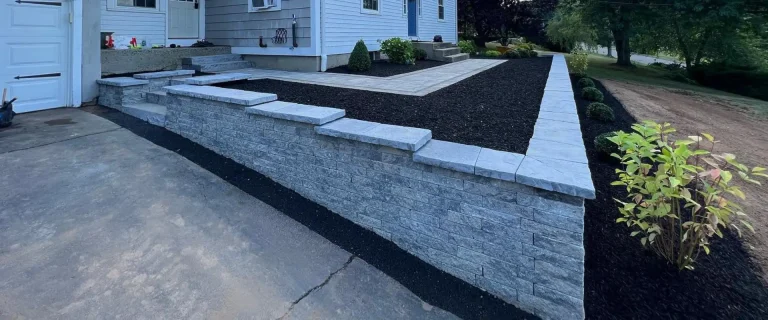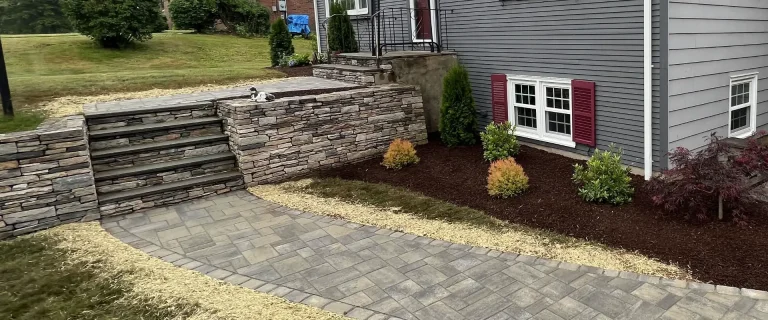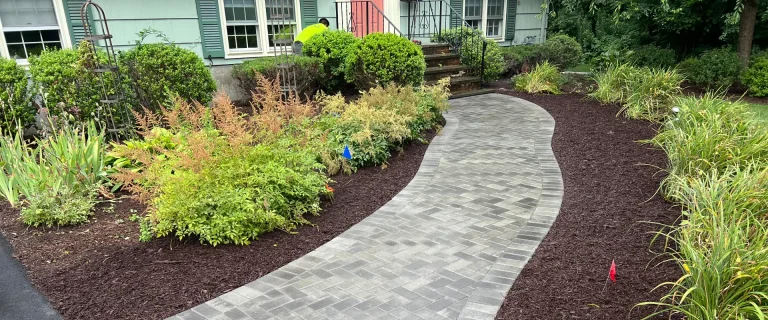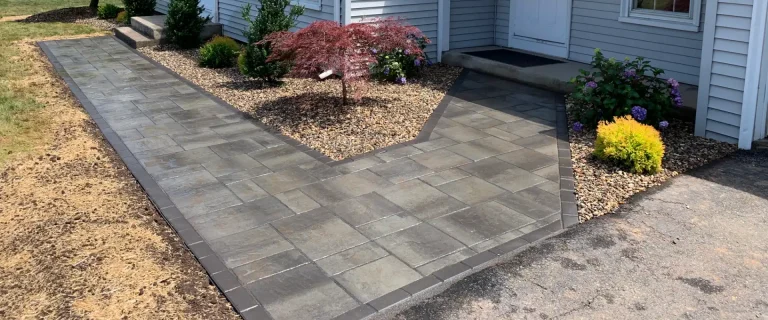Winter Damage to Lawn
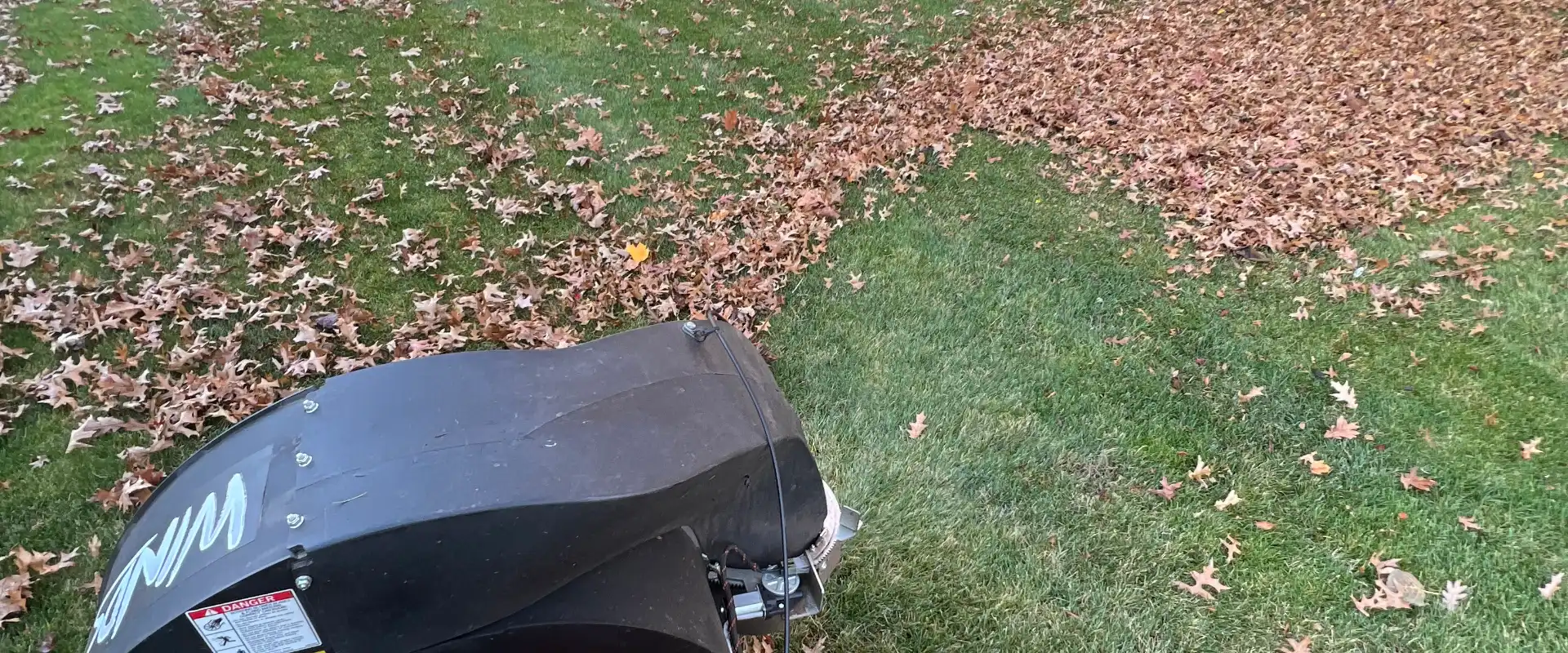
The cold Connecticut winters are notorious for damaging lawns and gardens. Garden plants and trees will naturally go into a period of dormancy to try and weather through the colder temperatures, and your lawn is no different.
You will notice that your lawn starts to slow down its growth during the fall and winter months, becoming dormant. This is all in an attempt to better protect itself against the cold, but when extreme weather conditions are prevalent, this can cause a larger problem than usual.
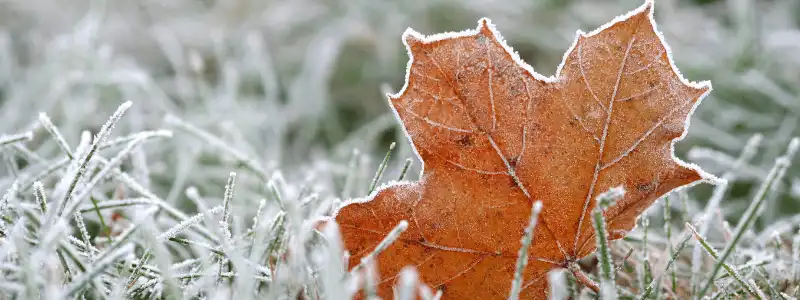
So if you want to know how to protect your lawn from winter damage, we will need to understand more about the kinds of damage it can cause, and how you can keep your grass protected as much as possible. You’ll be surprised how much you can help out your lawn with just a few steps of preparation! It will also be much easier than you first think to help your grass recover from winter damage.
It is also important to consult experienced professionals if you are having a hard time protecting your lawn ahead of winter or assessing the damage yourself. Experienced landscaping professionals in your area will know what your lawn needs before, during, and after the cold winter months.
Types of Winter Damage to Lawn
Before we get into how you can protect your lawn and help it recover, we first need to understand a little more about winter damage. What is winter damage to lawn? And how does this affect your lawn?
When the temperature drops below freezing, this will of course cause the weather to change. Ice, snow, and frost will become prevalent. This is especially true in states like Connecticut which are notorious for their harsh winters! You may notice the term “winter kill” being used in relation to your lawn during the colder winter months. This is a broad term that basically describes grass death because of ice, snow, or frost.
One of the worst winter conditions for your lawn is when the temperature fluctuates between above freezing and below freezing. This is because when the temperature warms up, your grass will naturally absorb more water. However, when the temperature plummets again, this extra absorbed moisture will freeze, and damage the plant. It can even kill off your grass if the process happens to an extreme degree.
Your lawn may become affected by the extreme cold temperatures if the roots were to become waterlogged and frozen. In this case, there would be no way for that crucial oxygen to get to your grass, and it will start to die off. If you were to walk on a frosty lawn, it could also damage it by causing the blades to fracture. The frost penetrates and ruptures the grass blade cells, leaving you with a damaged lawn.
Other reasons your lawn could be suffering from winter damage could be because of things like:
- Cold desiccation
- Snow mold
- Crown freeze
Voles under the surface
A combination of these things can also occur, causing even further damage to your lawn.
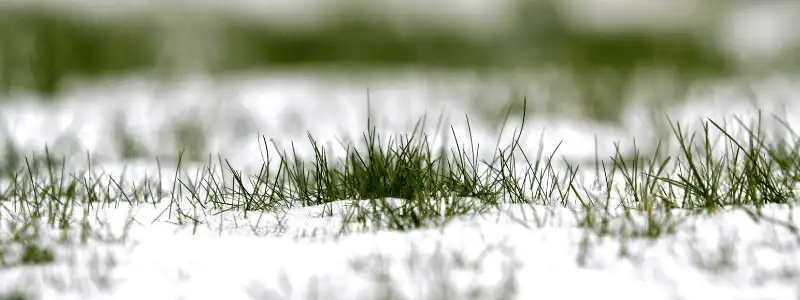
How to Prevent Winter Damage to Lawn
Winter damage preparation and mitigation have a lot to do with how you prepare for the upcoming cold and snowy season.
The best way to prevent your lawn from becoming too damaged by the winter weather is to carry out consistent maintenance before, during, and after the winter season.
This will keep your lawn healthy and more likely to bounce back from any winter damage it encounters.
You will need to gradually mow your lawn less during the fall and winter months. This is when it will slow down its growth rate accordingly. Make sure to avoid walking on your lawn if at all possible, especially if it’s particularly frosty or wet, as this can cause lasting damage.
If you notice a build-up of leaves and debris on your lawn, it will be crucial to rake these away. These will be preventing that much-needed moisture and light from getting to your grass. It’s best to do this once or twice a week to keep on top of things.
During the winter months, you may notice a large build-up of snow on your lawn and in your backyard. If you’re overly concerned about this having a detrimental impact on your lawn, it’s best to get the snow removed so that your grass won’t be as severely affected.
How to Deal With Winter Damage to Lawn the Following Spring
Seeing winter kill set into your lawn can be devastating, particularly if your grass is a source of pride for you and your home. However, not all hope is lost. Depending on the damage to your grass, there are ways that you can mitigate the damage and ensure that your lawn becomes vibrant once again.
The main methods that you can use to repair your lawn will be to dethatch it, resod your lawn with fresh sod, or reseed it so that the grass can grow back. It will be important to do this during the spring months once the snow and ice have had a chance to melt and you can rest assured that they won’t be making a repeat appearance.
It will also be important to ensure that your soil has been properly aerated so that the grass is getting the oxygen it needs, and so that excess water can efficiently drain away.
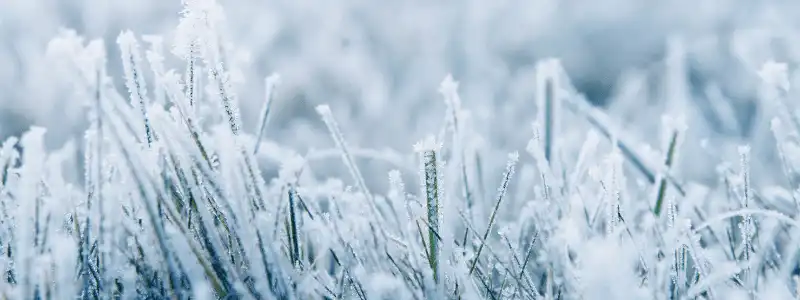
How can Scenic Landscaping help your lawn?
If you’re new to lawn care or have a particularly bad patch of winter damage on your lawn, it could be time to call in the professionals. This is where Scenic Landscaping can come to your lawn’s rescue. Scenic Landscaping has extensive experience with spring lawn cleanup, so can efficiently dethatch your lawn, aerate it, and give it the care it needs to bounce back to its former glory.
It can be fairly hard to judge for yourself how much reparation is needed to help save your lawn. However, using a professional company such as Scenic Landscaping can help to take the guesswork out of the process and complete the job to an expert standard.
Obviously, winter damage can be extensive on your lawn, particularly if the grass hasn’t been properly maintained in the weeks leading up to the extreme weather conditions. It will be best to give your lawn the attention it needs before the frost, ice, and snow can set in. If your lawn is particularly damaged from poor weather conditions, it will be worth considering employing the professional services of Scenic Landscaping to help with the spring lawn cleanup. Call us today for expert advice and landscape maintenance!

